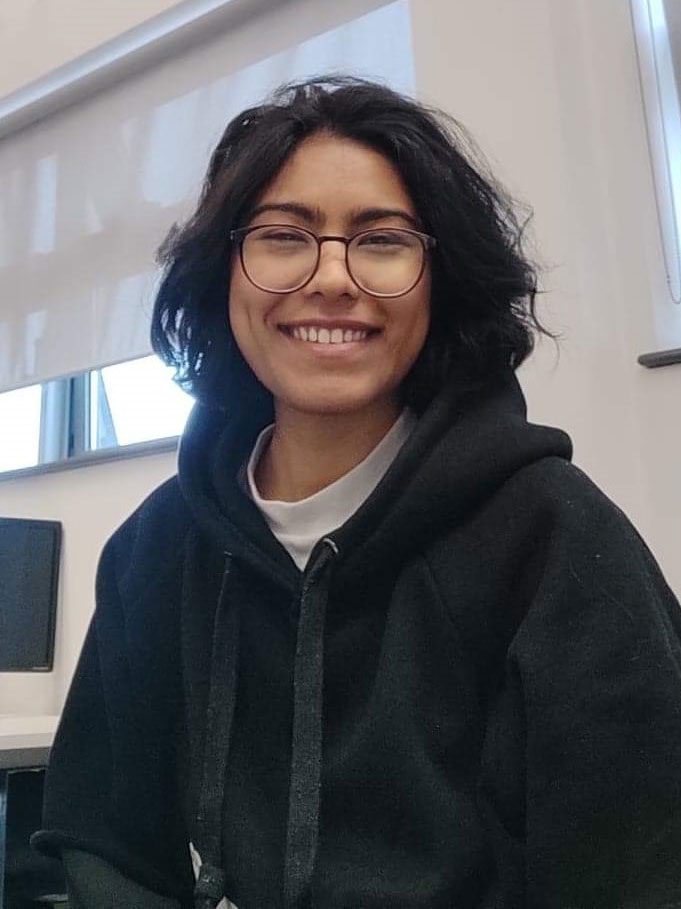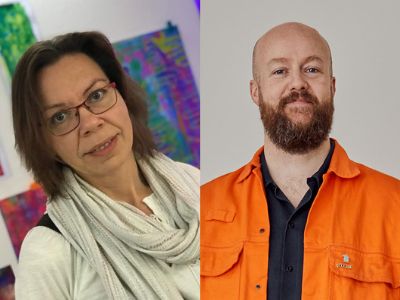Course overview
MA Illustration
Learn more about studying MA Illustration at Teesside University
This is a highly practical course, utilising methods through which illustration can be created and applied by challenging making and thinking. This approach enables you to become competitive, recognisable and adaptable.
You work on illustration practices, processes and outcomes, including commercial, editorial, authorial, sequential, multiform or active/participatory. You produce work for print and publishing, international competitions, children's picture books, zines, graphic novels, digital and screen-based production including animation, motion or large-scale installation.
You study at our School of Arts & Creative Industries, led by Teesside University and MIMA (Middlesbrough Institute of Modern Art), an international contemporary museum and gallery. You gain a full artistic experience, learning in a social space that inspires dynamic ideas, fuels collaboration and allows you to build local, national and international networks with industry professionals for your future illustration career.
Creative UK Take advantage of our Creative UK membership and help futureproof your career, with networking events, a resource hub to support professional development, and bespoke workshops in partnership with industry leaders and mentors. Sign up for free student membership to get opportunities, events and newsletters sent directly to your inbox.
Take advantage of our Creative UK membership and help futureproof your career, with networking events, a resource hub to support professional development, and bespoke workshops in partnership with industry leaders and mentors. Sign up for free student membership to get opportunities, events and newsletters sent directly to your inbox.
Association of Illustrators We’re a member of the Association of Illustrators, giving you access to interactive talks, guidance on contracts and licensing, and your own discounted membership. This gives you the tools you need to forge a successful career in industry or as a freelancer.
We’re a member of the Association of Illustrators, giving you access to interactive talks, guidance on contracts and licensing, and your own discounted membership. This gives you the tools you need to forge a successful career in industry or as a freelancer.
Course details
Course structure
Core modules
A picture speaks a thousand words, but how do pictures tell a story? You explore the capabilities of the single image to communicate on its own. You engage in creative and innovative ways with typical commercial outputs. You explore book covers, posters and promotional material that use illustration - each time reconsidering the communicative potential of the single image.
You create single images that suggest a larger narrative, intended to quickly deliver information, atmosphere, and pique curiosity.
Your assessment is 100% ICA based on a wordless piece of visual communication.
Illustration for Communication
You interrogate the field of visual communication and investigate the power of image-based communication in the commercial world.
You examine how complex issues are communicated in visual terms through the navigation of infographics, emoji’s, GIF’s, data visualization and much more as you research and analyse commercial communications in industry.
You also explore non-verbal communication and the use of iconography through history from cave paintings and hieroglyphs to emoji’s and brand marks.
You develop a piece of illustrative work suitable for the online space, describing a significant message or narrative in response to a given brief.
Your assessment is 100% ICA.
You will have the opportunity to demonstrate a deep and nuanced understanding of the key issues relating to the development of illustrative art created in response to found material. You will be provided with a written document that may be in the form of a professionally formatted brief but you will have the opportunity to potentially work with a range of written material from a variety of sources. You will respond to a visual adaptive/interpretive brief, as well as a live assessment that will emulate real-world freelancing by testing your ability to respond to a brief under a time limit.
You will undertake appropriate research and analysis which will be synthesised into your own visual interpretation. Experimentation with storytelling techniques and visual style will enable the you to recognise and develop your individual strengths leading to an original creative approach. You will be required to critically reflect upon your work to promote further development of specialist skills, and you will be assessed via a portfolio of artwork, a reflection and a response to a timed brief.
Through a series of workshops, you produce a range of professional assets designed to support your career aspirations. Projects and analysis of work-related practice will enhance your career vision in the media, events and creative arts industries.
You undertake a major, in-depth, individual study into an appropriate specialisation. These projects are drawn from appropriate commercial, industrial, artistic or research-based problem areas. The project involves research and investigation in relevant aspects of a very specific area of study followed by the production of a major portfolio of relevant practice-based materials from the area of illustration. You also produce a written report that contextualises and critically evaluates your final outputs.
You gain a grounding in research approaches and processes in the creative arts disciplines in areas such as animation, visual effects, games and concept art.
You learn how to construct a rigorous critical framework to generate evidence based material to justify and inform your conceptual investigation through creative practice. You also critically evaluate and source appropriate academic research and relevant outputs from the creative arts disciplines.
Your assessment is 100% ICA, a written critical discourse/research proposal that contextualizes and theorizes the accompanying practice element, this may form the basis of your master’s project.
You research and analyse an area of interest and develop a range of creative responses, developing a piece of illustrative art which communicates your original idea or story. You are encouraged to express your ideas in novel, original and visually idiosyncratic ways, demonstrating a high level of professional competence and willingness to experiment with a range of visual approaches. A range of publishing venues are discussed including online and print. You are required to critically reflect upon your work to promote further development and appropriate professional skills.
Advanced practice (2 year full-time MA only)
Undertake an opportunity that builds on your existing knowledge, skills, and experience and supports your future career interests and aspirations.
Learn how to develop solutions to real-world business problems and enhance your personal and professional knowledge, skills, and behaviours through reflection, critical thinking, and action.
Modules offered may vary.
How you learn
Research, theory and applied practice grounds your studies as you develop your own practice-based approach. Context of methodologies include individual, principles, research, historical or narrative. Whether you’re interested in creating a commercial body of work, an authorial-led practice or pushing territories of image-making, the course is uniquely structured to include space/s to enable, challenge and refine your practice.
How you are assessed
Various assessment methods are used throughout all of the modules and are specified in the module handbooks. These are primarily what we call in-course assessments, where you submit work during the delivery of the module, rather than sit timed examinations at the end. Arts modules are generally project based and primarily assessed through appraisal of a portfolio of work, often accompanied by a verbal presentation. Creative work is largely developmental and you are assessed on the process by which you achieve your solutions as well as the result, so it is essential that you provide clear evidence of your development work.
Entry requirements
You will normally have a first degree in related discipline (2.2 minimum) or relevant experience or equivalent qualifications.
You are expected to be a confident and independent learner with a good understanding of the design process, idea development and critical thinking. You are asked to present a portfolio of work or a completed project showing the development of your work from behind the scenes, or an ongoing project showing the progression and direction of your work.
In addition, international students will require IELTS 6.0 or equivalent.
For general information please see our overview of entry requirements
International applicants can find out what qualifications they need by visiting Your Country
Employability
Career opportunities
You could work as a freelancer or as an in-house studio illustrator across print, publishing or digital/screen.
You are taught by tutors with strong industry backgrounds and excellent networks. You have access to international artists and cutting-edge practice through MIMA’s visiting speaker programme. Recent speakers include Jimmy Turrell, Charli Vince, Nosy Crow publishing house and the contemporary studio Visual Editions. The course is also affiliated to the Association of Illustrators, providing access to their professional advice and content.
Information for international applicants
Qualifications
International applicants - find out what qualifications you need by selecting your country below.
Select your country:
Useful information
Visit our international pages for useful information for non-UK students and applicants.



























